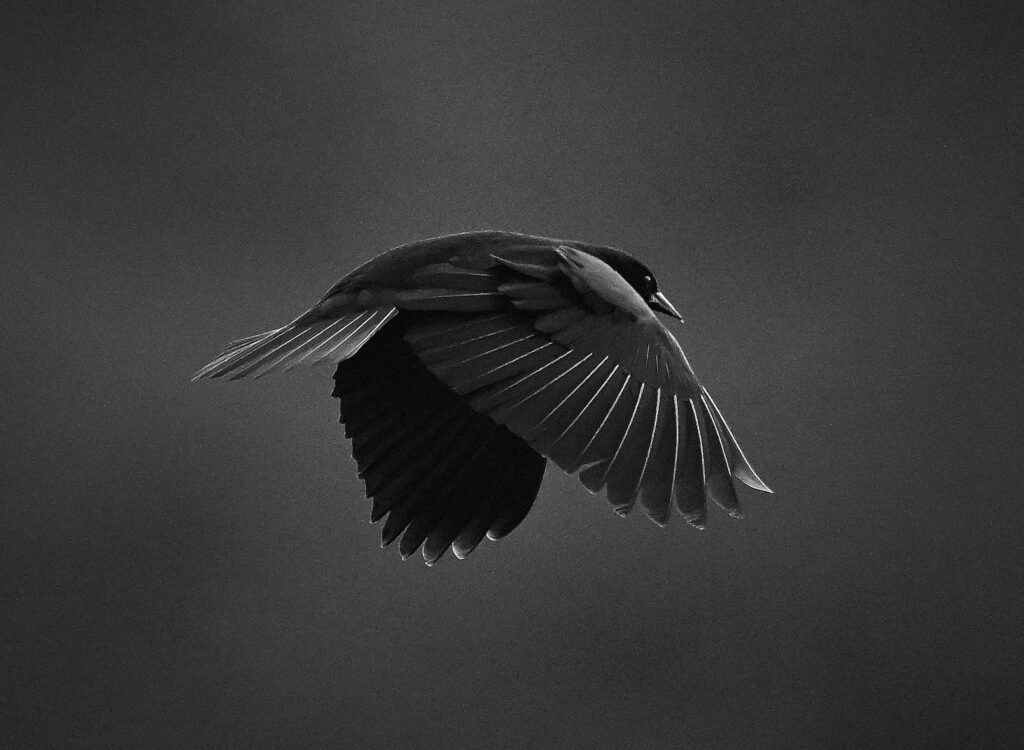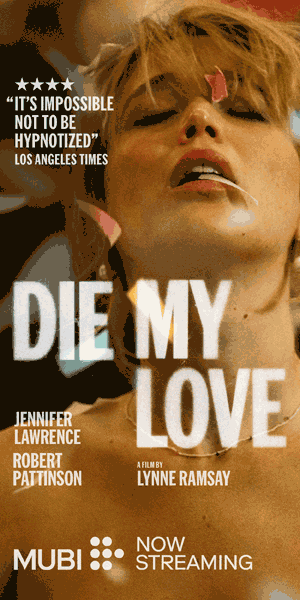The basic plot of Falling Hour, Geoffrey D. Morrison’s first novel, can be easily summarized. A youngish man, Hugh Dalgarno, goes to a park in London, Ontario, on June 11, 2019. He brings with him a picture frame that he has found hanging from a fire hydrant. He intends to sell this picture frame to a buyer he’s met online, but the buyer never arrives. Hugh wanders around the park for several hours. He hears a red-winged blackbird singing. Darkness falls. Strange music starts to play. He finds a dead red-winged blackbird and buries it under a bracken bush by the park pond. He washes his hands in the public washroom, which is covered in graffiti. He hangs the frame from the door and leaves. It’s not clear where he’s going next.
That’s all — except that, of course, that isn’t all, because Falling Hour is in the grand, complicated tradition of modernist novels. Over the course of his day in the park, Hugh’s thoughts travel across time and space in an endless, meandering attempt to understand how the world came to be the way it is. The result is a book that is dense but never ponderous, an exquisitely written piece of prose far wiser than a debut has any right to be.
The thing about Hugh, we learn early on, is that his brain is broken. He is no longer able to think in a linear way. Gathering his thoughts is “like trying to keep a fistful of optical fibres together in one hand while the other was tied behind my back.” These thought-fibres are “like angel-dusted heads of pins: each one possible, each one possibly important, each one with the power to cancel out all the others if I dared let it veer far enough away on its own.” Each individual line of thought is coherent on its own, but taken together they add up to a series of terrible paradoxes. One manifestation of this phenomenon is Hugh’s difficulty in separating the past from the present. He cannot escape the feeling that history is collapsing in on itself, and that “things are always only ever about to happen.”
For this reason, being inside Hugh’s brain is electrifying: the dead body of the red-winged blackbird brings to mind the banners of the Russian revolutionaries of 1905, shot dead on the Potemkin Steps in Odessa, which brings to mind Colchis on the Black Sea, where Jason and the Argonauts found the Golden Fleece, and then the “false flags” flying above the United States and Canada. In the course of his ramble around the park, Hugh thinks about John Keats, Ada Lovelace, the relationship between the Jacquard loom and computing and cognition, the European invasion of the Americas, his Scottish peasant ancestors, his childhood on the West Coast, the colonization of Ireland, the genesis of the phrase “stream of consciousness,” his deceased great-uncle and great-aunt, the role of Scottish emigrants in the colonization of Canada, the origin of the name of the River Thames, and the many interpretations of the folk song “The Bonnie Lass o’Fyvie.” Most of all, he thinks about the “snail-shell wisdom” of Calvinism, the Protestant doctrine promoted by John Knox.

A red-winged blackbird sends the young man’s modernist mind racing.
Rory Merry; ZUMA Press Wire; Alamy
Calvinism teaches that all people are predestined either for Heaven or for Hell and that people cannot really know whether they are saved until they die. The Calvinist mind, or at least the Scottish Calvinist mind, is, for Hugh, always turning back in on itself, searching for signs of the fated damnation. It swings between the certainty of salvation, which leads to a sense of superiority, and the certainty of damnation, which leads to abjection. Atheism is no cure; Calvinism sits deep in the bones, and Hugh tells us that though the great-uncle and great-aunt who raised him had repudiated the Calvinism of their Scottish upbringing, they did so “in a Calvinist way.” The spiral pattern of the doctrine, turning ever inward, causing wild swings between self-satisfaction and self-doubt, is imprinted on his mind.
The snail-shell quality of Hugh’s thinking is most fascinating when his mind turns to politics. He has a theory that Canada, unlike his native Scotland (Hugh was sent to live with his family on the West Coast as a small boy), is fundamentally a Methodist country. Whereas Calvinists are deranged by their fear of predestined damnation, Methodists are deranged by their conviction that all can be saved. Although it might seem on the surface to be the more optimistic faith, Methodism turns out to be equally monstrous: if all can be saved, all must be saved, and every coercive organ of the state and civil society should be turned toward this purpose. Canadian liberalism — with its sanctimonious hypocrisy, boundless self-regard, hall-monitor approach to morality, and legacy of residential schools — is, Hugh understands, simply a secularized version of Methodism. Canada is “a liberal-Methodistical state, keeping just enough people on this side of non-immiseration to prevent a fight for real socialism, real radicalism, and hushing anybody who tries to with its smothering and suffocating and rules.” It would be difficult to think of a more apt description of the Anglo-Canadian political project.
It’s little surprise, then, that Hugh is a socialist, with (as he says) a materialist conception of history. He makes a living working from home for a “doomed” e-commerce business, which sells “premium bags and accessories to the kind of people who seemed to exist only in photos,” and he donates a quarter of his paycheque to the Party of Socialist Workers (Marxist-Leninist) every month — though he doesn’t attend its meetings and isn’t involved in the kinds of activities that are a traditional feature of socialist movements. In this way, Hugh is typical of his class: an intellectually sophisticated but completely atomized member of the neo-liberal precariat, severed from his proletarian roots by migration and education, unable and unwilling to join the bourgeoisie for moral and economic reasons. His loneliness, his ambivalence, and perhaps even his broken brain are products of this dislocation (an assessment I suspect Hugh would not disagree with).
Of course, it isn’t really possible to be a socialist on your own, just as it isn’t really possible to be engaged in politics if you don’t go to meetings; this isn’t so much a criticism of Hugh as an acknowledgement of his predicament. With his broken brain, filled with knowledge that can only torment him, and with no obvious path toward meaningful action, he wanders through the park, caught in “a thesis and antithesis without synthesis, a moon and sun in motion around a waiting and stagnant earth.”
This is one of the reasons Hugh narrates his story the way he does. His unbelieving Calvinism has led him to become infected with the “mind virus of skepticism,” the conviction that “nothing on earth was truly the name we called it by.” Canada is a liberal-Methodistical state, but it is also not real; it exists as a linguistic convention that has only the power we grant it. For Hugh, language itself is a veil over the world, a misleading series of signifiers that have no necessary relationship to material reality. Many of his digressions end with him reminding himself that everything he is thinking about is “made up”— though acknowledging it is made up does not free him from having to think about it. This philosophical problem supplies the main drama of Falling Hour : How can Hugh square the conviction, born of the brokenness of his brain, that everything is artificial with his desire to act meaningfully in the world?
Toward the end of the novel, Hugh’s mental peregrinations lead him to the subject of miracles. He believes that miracles are possible and that they have happened: the Haitian Revolution, the Irish War of Independence, Mao’s Long March, Cuba in 1959, Russia in 1917.
There is something incredibly tender about Hugh’s weary revolutionism, for he is, unlike the warriors he celebrates, a gentle man. The revolution he awaits is like the one described in Walter Benjamin’s Toward the Critique of Violence, in which messianic violence sweeps away the rule of kings and states and the brutal cycle of history is broken. It is, in short, a mystical and apocalyptic revolution, all the more potent for having never been realized; perhaps it would even be a revolution profound enough to destroy the snail-shell wisdom of Calvinism and the pious cant of the Methodistical state of Canada. Scoffers can mock, but it was hunger for this kind of revolution that made the modern world.
It is rare to come across a debut novel that feels so unapologetically intellectual and, at the same time, so alive to what is beautiful and terrible in human life. Falling Hour is more than just the record of a character’s thoughts over the course of a day; it is a kind of literary ghost bicycle chained to the spot where a cyclist was killed, an anthem of the defeated, a howl of rage at a violent machine. It is also, I’m afraid to say, a masterpiece.
André Forget edited After Realism: 24 Stories for the 21st Century and wrote In the City of Pigs. He lives in Sheffield, United Kingdom.
Related Letters and Responses
@aeakinwumi via Twitter
@geoffreydmorri1 via Twitter

